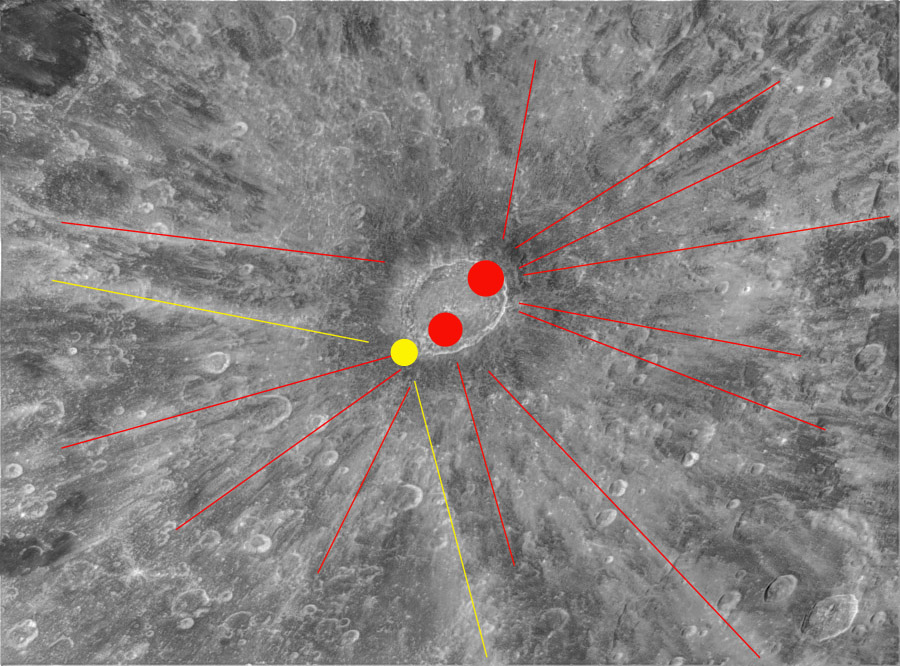Difference between revisions of "December 15, 2011"
| Line 3: | Line 3: | ||
<!-- ws:start:WikiTextHeadingRule:0:<h1> --> | <!-- ws:start:WikiTextHeadingRule:0:<h1> --> | ||
<!-- ws:start:WikiTextLocalImageRule:6:<img src="/file/view/LPOD-Dec15-11.jpg/286239272/LPOD-Dec15-11.jpg" alt="" title="" style="width: 750px;" /> -->[[File:LPOD-Dec15-11.jpg|LPOD-Dec15-11.jpg]]<!-- ws:end:WikiTextLocalImageRule:6 --><br /> | <!-- ws:start:WikiTextLocalImageRule:6:<img src="/file/view/LPOD-Dec15-11.jpg/286239272/LPOD-Dec15-11.jpg" alt="" title="" style="width: 750px;" /> -->[[File:LPOD-Dec15-11.jpg|LPOD-Dec15-11.jpg]]<!-- ws:end:WikiTextLocalImageRule:6 --><br /> | ||
| − | <em>image by [mailto:tosi.philippe@wanadoo.fr | + | <em>image by [mailto:tosi.philippe@wanadoo.fr Philippe Tosi], with annotations by [mailto:davidtlloydjones@aol.com David Lloyd-Jones]</em><br /> |
<br /> | <br /> | ||
Having an inquisitive mind, David marked lines along some of the prominent rays from yesterday's LPOD of Tycho. As his diagram shows, some rays (red lines) converge onto two spots (red dots) inside the crater. This is interesting and likely. It may be that ejecta was sent out in different directions from these sources. Two other lines (yellow) - a small sample - converge (yellow dot) just outside Tycho's rim. This is peculiar because material was presumably not ejected from there. But it has been known for a long time that some rays from Tycho, Copernicus and other craters are tangential to their rims. Of course, the details of why are not certain, but it happens. What David has done is explore a new method of looking more closely at the places of origins of rays. I think Shoemaker did this is the early 60s for Copernicus, but with better images and processing it may be possible to learn more. Perhaps David or others will plot many more rays to confirm and extend this investigation. There are, in fact, enough ray craters to go around.<br /> | Having an inquisitive mind, David marked lines along some of the prominent rays from yesterday's LPOD of Tycho. As his diagram shows, some rays (red lines) converge onto two spots (red dots) inside the crater. This is interesting and likely. It may be that ejecta was sent out in different directions from these sources. Two other lines (yellow) - a small sample - converge (yellow dot) just outside Tycho's rim. This is peculiar because material was presumably not ejected from there. But it has been known for a long time that some rays from Tycho, Copernicus and other craters are tangential to their rims. Of course, the details of why are not certain, but it happens. What David has done is explore a new method of looking more closely at the places of origins of rays. I think Shoemaker did this is the early 60s for Copernicus, but with better images and processing it may be possible to learn more. Perhaps David or others will plot many more rays to confirm and extend this investigation. There are, in fact, enough ray craters to go around.<br /> | ||
<br /> | <br /> | ||
| − | <em>[mailto:tychocrater@yahoo.com | + | <em>[mailto:tychocrater@yahoo.com Chuck Wood]</em><br /> |
<br /> | <br /> | ||
<strong>Technical Details</strong><br /> | <strong>Technical Details</strong><br /> | ||
Revision as of 16:43, 11 January 2015
Tracing Back the Rays

image by Philippe Tosi, with annotations by David Lloyd-Jones
Having an inquisitive mind, David marked lines along some of the prominent rays from yesterday's LPOD of Tycho. As his diagram shows, some rays (red lines) converge onto two spots (red dots) inside the crater. This is interesting and likely. It may be that ejecta was sent out in different directions from these sources. Two other lines (yellow) - a small sample - converge (yellow dot) just outside Tycho's rim. This is peculiar because material was presumably not ejected from there. But it has been known for a long time that some rays from Tycho, Copernicus and other craters are tangential to their rims. Of course, the details of why are not certain, but it happens. What David has done is explore a new method of looking more closely at the places of origins of rays. I think Shoemaker did this is the early 60s for Copernicus, but with better images and processing it may be possible to learn more. Perhaps David or others will plot many more rays to confirm and extend this investigation. There are, in fact, enough ray craters to go around.
Chuck Wood
Technical Details
Same as yesterday: October, 2011. C.14 with Skynyx 2.1 M + IR filter 742nm. HDR Soft Photomatix 4 developped by HDRsoft Society, fusion of 3 expositions 0.08; 0.16 and 0.32 sec.
Related Links
Rükl plate 64



